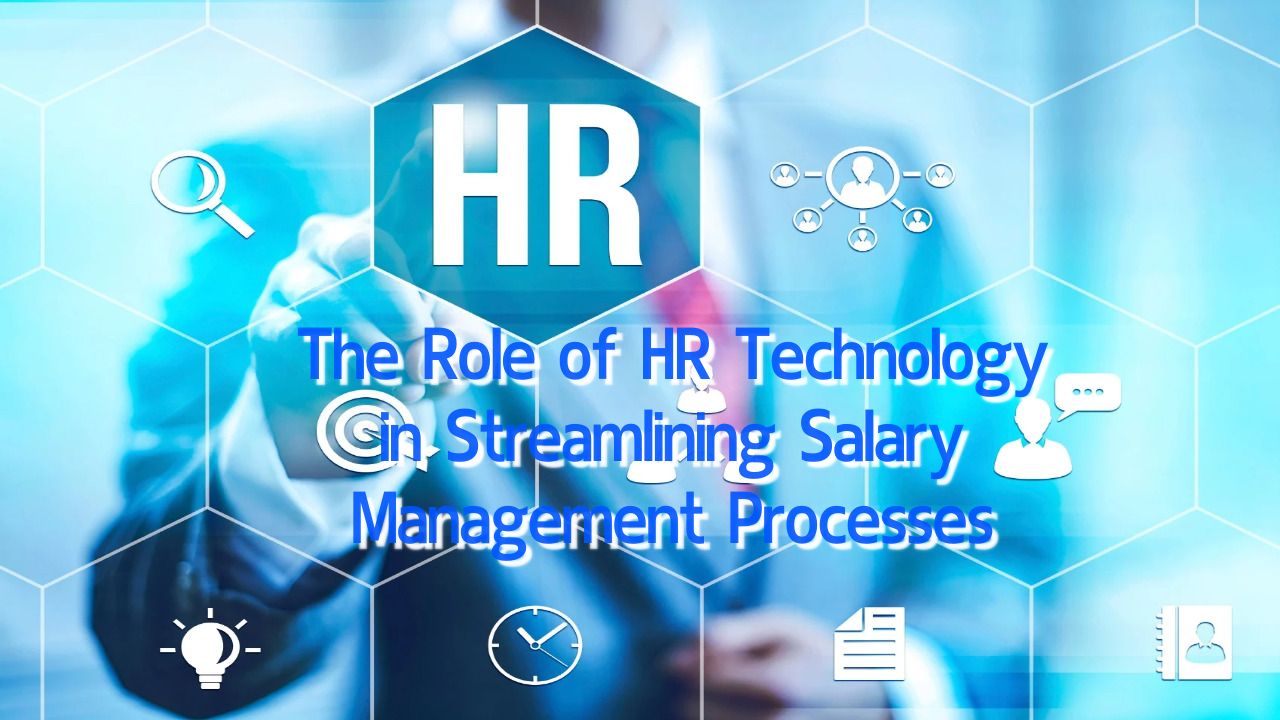In today’s fast-paced business environment, human resources (HR) departments play a crucial role in managing an organization’s most valuable asset: its employees. One of the key responsibilities of HR is salary management, ensuring that employees are compensated fairly and accurately. The advent of HR technology has revolutionized the way organizations handle salary management processes, bringing efficiency, accuracy, and transparency to the forefront. In this article, we will explore the role of HR technology in streamlining salary management processes, focusing on three key subheadings: automation, data analytics, and employee self-service.
Automation

HR technology has automated many aspects of salary management, significantly reducing the time and effort required to carry out these processes manually. With automated payroll systems, HR professionals can easily calculate and process salaries, bonuses, and deductions accurately and efficiently. These systems can integrate with attendance and leave management software, ensuring that salaries are calculated based on actual working hours. Automation eliminates human errors and reduces the risk of compliance issues, ensuring that employees receive their salaries on time and in accordance with company policies and legal regulations. Moreover, creating pay stubs online is also a part of automation. Visit www.thepaystubs.com!
Moreover, HR technology enables the automatic generation of payslips and tax documents, simplifying the administrative burden associated with salary management. By automating routine tasks, HR professionals can focus on more strategic initiatives, such as talent management and employee development, thereby adding greater value to the organization.
Data Analytics

Another significant advantage of HR technology in salary management is its ability to leverage data analytics. HR systems can generate comprehensive reports and analytics on various salary-related metrics, such as salary distribution, pay gaps, and salary trends across departments or job levels. These insights enable HR professionals to make informed decisions regarding compensation strategies, identify areas of improvement, and ensure fair and competitive salary structures.
Data analytics also help organizations identify potential disparities in pay based on gender, ethnicity, or other demographic factors, promoting diversity and inclusion initiatives. By analyzing salary data, organizations can proactively address any pay gaps and ensure equitable compensation practices. HR technology empowers HR professionals to be strategic partners in the organization’s overall compensation strategy, fostering employee satisfaction and engagement.
Employee Self-Service
HR technology has empowered employees with self-service portals, allowing them to access and manage their salary-related information independently. Through these portals, employees can view their payslips, download tax documents, update personal information, and make changes to their bank account details. This self-service functionality not only enhances transparency but also reduces the administrative burden on HR departments, as employees can handle many salary-related tasks themselves.
Employee self-service portals also enable employees to have real-time visibility into their salary details, empowering them with greater control and understanding of their compensation. They can easily access information on deductions, allowances, and bonuses, facilitating better financial planning and budgeting. Additionally, self-service functionality improves employee engagement and satisfaction by providing instant access to important salary-related information, thereby increasing transparency and trust within the organization.
In conclusion, HR technology has revolutionized salary management processes by bringing automation, data analytics, and employee self-service to the forefront. By automating routine tasks, leveraging data analytics, and empowering employees with self-service functionality, HR professionals can streamline salary management processes, enhance accuracy and efficiency, and promote transparency and fairness in compensation practices. Embracing HR technology in salary management is essential for organizations to stay competitive, drive employee satisfaction, and foster a positive work environment.
